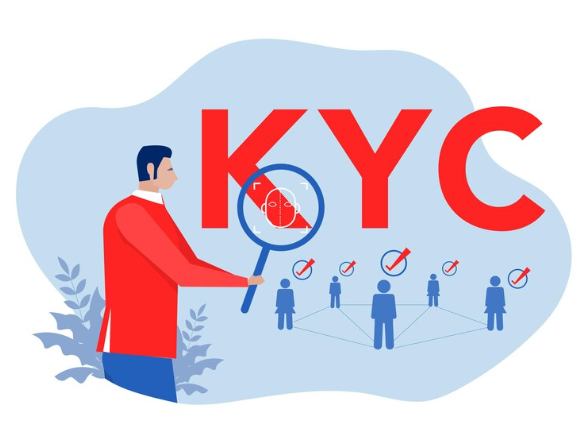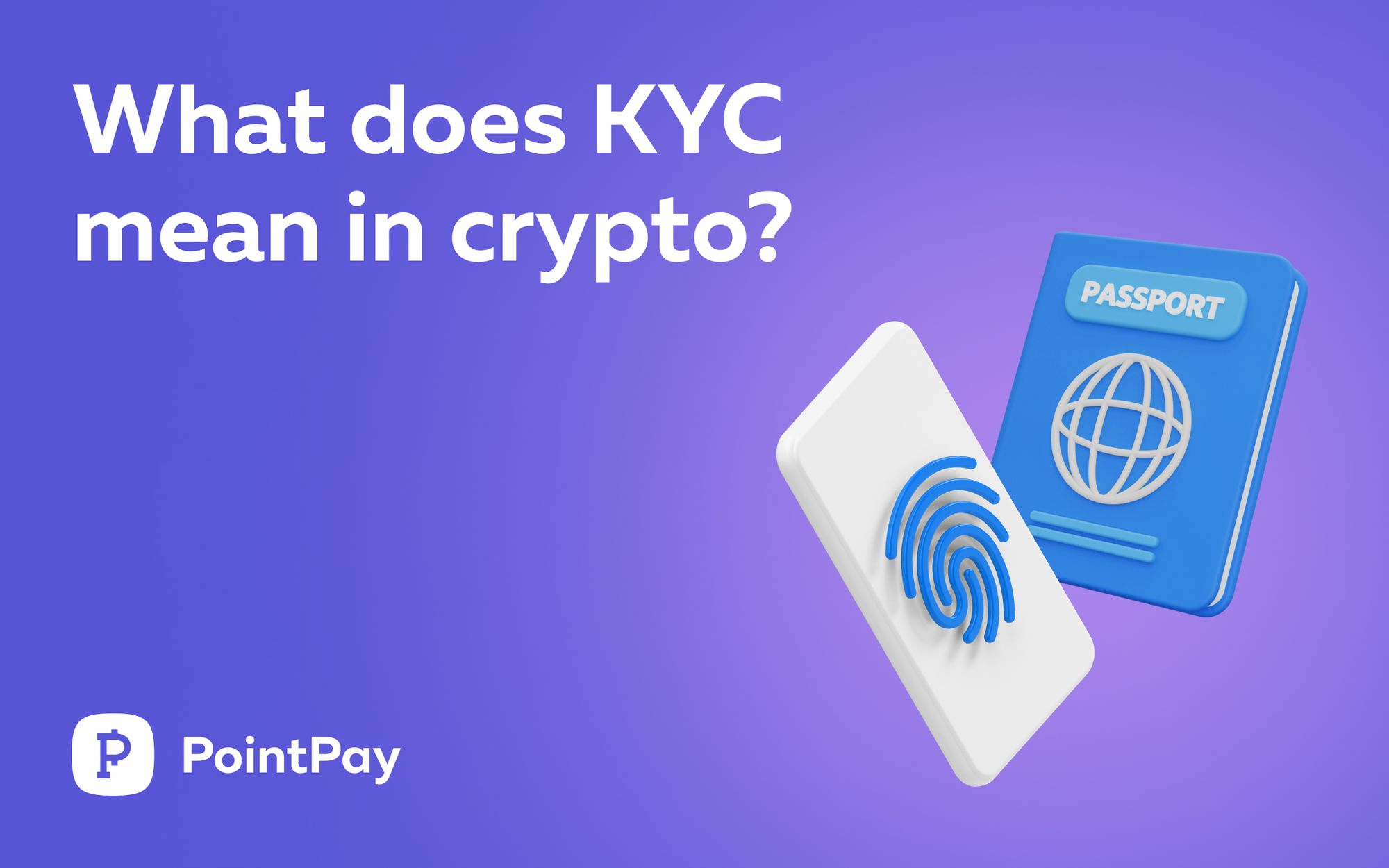As a person looking to open an account with cryptocurrency exchanges, you have probably come across the term KYC. Like other financial institutions, leading cryptocurrency exchanges worldwide require clients to pass mandatory verification to receive permanent access to services. In this article, we will discuss the benefits of KYC in crypto exchanges, as well as the risks involved with this process. We will also explore what challenges crypto exchanges face with KYC. Let’s get started!
What is KYC?
KYC, or know-your-customer, is the principle of activity of financial institutions (banks, exchanges, bookmakers, investment, etc.), obliging them to identify the counterparty’s identity before conducting a financial transaction. This is done to prevent money laundering and other financial crimes. In order to complete the KYC process, you will need to provide the institutions with some personal information, such as your name, address, date of birth, and proof of ID. Such policy has many purposes, including a better understanding of the clientele, monitoring financial transactions, reducing client risks, and preventing corruption.

What does KYC mean in crypto exchanges?
In the context of cryptocurrency exchanges, the process is similar to the one used by traditional financial institutions. Typically, clients are required to provide information for KYC during the account registration process and sometimes in the event of data changes. For example, if you officially changed your name a few months after registering for an account, you will have to provide new information for KYC.
Several years ago, the KYC procedure was voluntary, and not all exchanges used it. Today, due to the pressure of financial regulators, it is a mandatory legal practice.
How does KYC work?
The KYC process starts when you create an account with a cryptocurrency exchange. During account registration, you will be asked to provide some personal information. Once the exchange has received this information from you, they will proceed to verify it. The verification process can take a few minutes or days, depending on the exchange and the country you are located in. After your account has been verified, you will be able to use all the features and services of the exchange.
How does the standard KYC procedure work?
The main stages of the procedure are the collection and verification of data. This also includes due diligence and ongoing user monitoring. Verification procedures may vary depending on the nature of the business, but they serve the same purpose.
KYC verification usually consists of 3 parts:
- Customer Identification Program (CIP). The first part of the procedure is to ensure you are who you say you are. For this purpose, personal data is collected: name, address, date of birth, place of birth, and citizenship. The exchange will also require a copy of your passport or other government-issued ID.
- Customer Due Diligence (CDD). The second part of the procedure is to collect information about your activity on the exchange. The exchange will ask questions about your trading experience, investment goals, and understanding of financial risks.
- Ongoing Monitoring. The last part of the process is to monitor the customer’s activity on an ongoing basis. Exchanges may request additional documents at any time. For example, if you start trading large amounts of cryptocurrency, the exchange may ask you to provide proof of income.

Why does crypto need KYC?
There are several reasons why cryptocurrency exchanges require customers to undergo the KYC process. Firstly, it is a legal requirement in many countries. Secondly, it helps exchanges prevent financial crimes such as money laundering and terrorist financing. Thirdly, it allows exchanges to understand their customer base better and monitor financial transactions. And lastly, it helps to reduce risks for both the exchange and the customer.
What are the benefits of KYC in crypto?
The benefits of KYC in crypto exchanges are numerous.
- Increased transparency and trust among customers: Customers are more likely to trust an open and transparent exchange about its KYC procedures.
- Reduced financial risks: By understanding the customer’s financial history and goals, exchanges can better assess the risks associated with doing business with them.
- Reduced legal risks: By complying with KYC regulations, exchanges can reduce the risk of being fined or shut down by financial regulators.
- Improved customer experience: The KYC process can help exchanges identify potential customer account problems and address them before they cause any issues.
- Enhanced compliance: Exchanges that follow KYC procedures are more likely to comply with financial regulations.
- Increased market stability: By reducing the chances of financial crimes, KYC can help to stabilise the cryptocurrency market.
Crypto Exchange KYC Risks
Cryptocurrency exchanges face several risks when it comes to KYC.
- Anonymous transactions: One of the main advantages of cryptocurrency is that it allows users to remain anonymous. However, this also makes it difficult for exchanges to verify the identity of their customers.
- Fraudulent activity: There is a risk that some customers may use false or stolen identities to open accounts on exchanges. This can lead to financial losses for the exchange and its customers.
- Data breaches: Another risk for exchanges is that customer data may be stolen or leaked. This could lead to identity theft and financial fraud.
- Structured transactions: Some customers may try to structure their transactions in a way that makes it difficult for the exchange to comply with KYC regulations. For example, they may use multiple wallets or exchanges to complete their transactions.
- Negative customer experiences: Some customers may find the KYC process intrusive or inconvenient. This could lead them to take their business to another exchange.

How can an exchange ensure that customers’ personal data is handled safely and securely during the KYC process?
There are a few things that exchanges can do to ensure that customer data is handled safely and securely.
- Use secure methods for storing and transmitting data: Exchanges should use secure methods, such as encryption, for storing and transmitting customer data.
- Implement strong access controls: Exchanges should implement strong access controls to prevent unauthorised access to customer data.
- Train employees on data security: Employees should be trained on how to handle customer data safely and securely.
- Have a data breach response plan: In the event of a data breach, exchanges should have a plan to respond quickly and effectively.
Can you buy crypto without KYC?
Yes, there are a number of ways to buy cryptocurrency without going through the KYC process.
- Peer-to-peer exchanges: These exchanges allow users to trade directly with each other without the need for KYC.
- Decentralized exchanges: These exchanges are based on blockchain technology and allow users to trade without the need for KYC.
- Over-the-counter trading: This is a type of trading that happens directly between two parties, without the need for an exchange.
What are the risks?
There are a few risks to consider before buying cryptocurrency without KYC.
- Lack of customer protection: If you trade directly with another person, there is no guarantee that they will not scam you or refuse to pay you.
- Increased chance of fraud: Without KYC, it is more difficult to verify the identity of the person you are trading with. This increases the chances that you could be scammed.
- Volatile prices: Cryptocurrencies can be very volatile, and prices can change rapidly. This means that you could lose a lot of money if you buy without KYC.
What challenges do crypto exchanges face with KYC?
Cryptocurrency exchanges face a number of challenges when it comes to KYC.
- Lack of regulatory clarity: There is still a lack of clarity around the KYC regulations for cryptocurrency exchanges. This makes it difficult for exchanges to know how to comply with the law.
- Technical challenges: The KYC process can be complex and time-consuming, mainly if the exchange deals with many customers.
- Cost: The KYC process can be costly for exchanges, both in terms of money and time.
- Customer privacy: Some customers may be concerned about the exchange collecting their personal data. This could lead them to take their business to another exchange.
Despite the challenges, many exchanges still implement KYC procedures to protect their customers and themselves. By doing so, they can reduce the risk of financial crimes and improve customer trust.
Final Thoughts
KYC is an essential part of the cryptocurrency ecosystem. It helps to protect exchanges and their customers from financial crimes. While there are some challenges, many exchanges are still implementing KYC procedures. This is because the benefits of doing so outweigh the risks. By doing so, they can reduce the risk of financial crimes and improve customer trust.
Now that you know more about KYC in crypto, you can make an informed decision about whether or not to participate in the KYC process.
